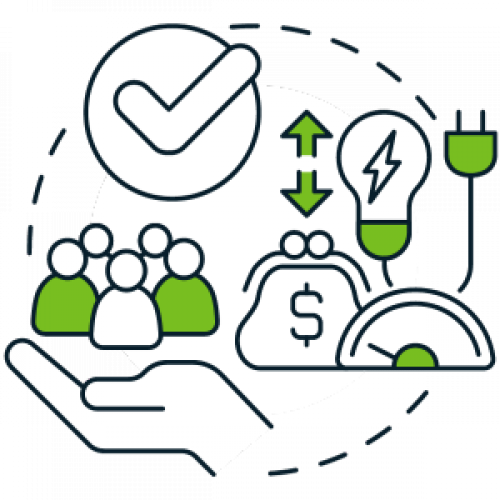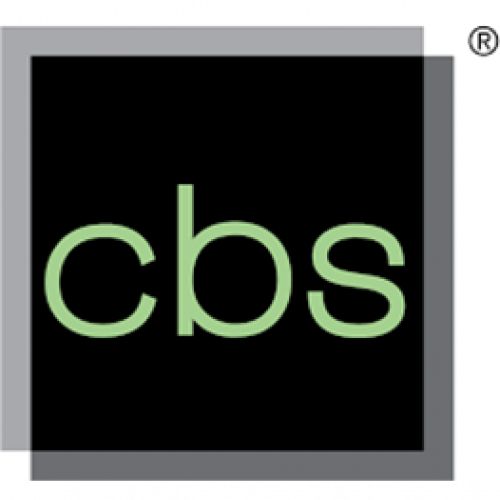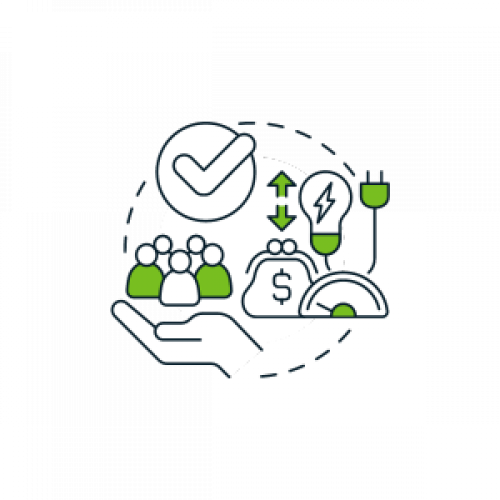Types of Loans
As you face various expenses like going to college, buying a house, or fulfilling a personal dream, you'll find that different types of loans work for different situations. To make informed decisions, familiarize yourself with common types of loans, repayment terms, APRs, and credit requirements for each loan type.
As your credit union, Pathways is here to help you understand more about your lending options so you're empowered to make the best possible choice when it comes to borrowing money.
Knowing the difference between secured and unsecured debt, as well as fixed and variable interest will also increase your borrower know-how. To be prepared to borrow the right type of loan when the need arises, let's address these three questions together:
- What are the different types of loans?
- What are the different types of personal loans?
- What type of loan should you borrow?
What are the different types of loans?
1. Personal Loan
Personal loans are loans that are designed for individuals for various types of expenses. Personal loans can be used to finance a wide range of purchases from vacations, home improvements, and medical expenses to debt consolidation or even starting a business.
A personal loan is typically unsecured, meaning there is no collateral required for the loan. This means that the interest rate is usually higher than loans that are secured.
Repayment terms: 7 to 120 days
Credit score: Not a factor
2. Mortgage Loan
Mortgage loans are loans used to purchase a home and typically require collateral in the form of property as security for the loan. Mortgage loans usually carry a lower interest rate than personal loans, but they can be harder to obtain due to stricter credit requirements and down payment requirements.
Repayment terms: 7 to 120 days
Credit score: Not a factor
3. Auto Loan
Auto loans are loans designed to help people borrow money to purchase vehicles, such as cars and trucks, and usually require collateral in the form of the vehicle itself as security for the loan. Auto loans usually carry a lower interest rate than personal loans, but they can be harder to obtain due to stricter credit requirements.
Repayment terms: 7 to 120 days
Credit score: Not a factor
4. Student Loans
Student loans are a form of personal loan designed to help students pay for college, university, or other post-secondary education, typically covering expenses federal student loans cannot meet. These loans, much like federal student loans, can be obtained from the government, but also via private lenders.
Interest rates on private student loans can vary depending on the lender and available loan option. Government loans typically have lower interest rates and repayment options than loans from private institutions. Student loans can typically be used to cover tuition fees, living costs, and other related educational expenses such as books and materials.
Depending on the lender (i.e. bank, credit union or other) or type of loan, repayment terms can range from 10-30 years with fixed or variable interest rates. Government loans typically offer more favorable terms than private lenders with deferred payments, and income-based repayment plans.
Repayment terms: 7 to 120 days
Credit score: Not a factor
5. Payday Loans
A 'payday loan' is an umbrella term that describes cash advances and other affiliated unsecured loan typically designed for individuals who need short-term financial relief.
A payday loan often requires repayment within two weeks up to a month and carry high-interest rates compared to other types of unsecured personal loans. Typically, lenders that often cash advances and payday lending options do not have stringent credit requirements but may charge extra fees or interest penalties if the loan is not repaid on time.
Credit unions and other people-focused community banking institutions do not recommend cash advance or payday loans due to the burden they put on the borrow, often having a long-term detrimental impact on credit scores, revolving credit, credit line, credit history, existing debt and more. The also puts borrowers in danger of having poor credit in the future.
At the end of the day, they eat away at your bank account and bottom line.
Repayment terms: 7 to 120 days
Credit score: Not a factor
6. Pawn Shop:
Pawn shop loans are loans that allow individuals to obtain a loan against an item of value, such as jewelry, electronics, or collectibles. These loans typically require the borrower to place the item in a pawn shop as collateral. Since these loans are secured, they usually have lower interest rates than unsecured options.. When the loan is repaid, the pawn shop returns the item.
7. Small Business Loans
Small business loans are loans designed to help small businesses finance their operations and cover costs associated with starting and running their businesses.
These loans are available as a secured loan or unsecured depending on the lender and borrower's creditworthiness. Small business loans typically offer flexible repayment terms, lower interest rates than other types of loans, and access to capital that would otherwise be unavailable.
Additionally, they usually also offer tax advantages as some of them may qualify for deductions at tax time up to certain limits set by law making them advantageous investments for any entrepreneur with compatible credit history looking for funds without having personal assets put online or paying excessive fees or interests like traditional bank loans.
Credit unions like Pathways are equally capable of offering these loans to you!
8. Credit Builder Loans: A Financial Solution for Credit Building
Credit builder loans are a type of loan designed to help individuals build their credit score. This loan typically requires no collateral, and the loans are usually small amounts, often between $500 and $1,000.
Credit builder loans can be used for any purpose, such as paying off debt or making a purchase. The loans have short repayment terms ranging from six months to one year, so they can be paid off quickly while still allowing borrowers to improve their credit score in the process.
9. Debt Consolidation Loans: A Financial Helping Hand
A debt consolidation loan is a personal loan designed to help individuals pay off their existing debts by combining them into one loan with a lower interest rate. This can help reduce the amount of interest paid on debt over time and make it easier for borrowers to keep track of their monthly payments.
They form of loans often require collateral in the form of property or assets as security, and borrowers must have good credit in order to qualify for these loans. They typically offer more flexible repayment terms than other types of loans, such as mortgages or auto loans, meaning that borrowers have more control over when and how much they need to repay each month.
Additionally, because debt consolidation loans combine multiple loans into one loan, they can also reduce the number of bills a borrower has to manage each month, making it easier to stay on top of their finances.
10. Holiday Loans: A Trustworthy Solution for Gift Giving
A holiday loan is a type of personal loan that can be used to finance a vacation or other travel-related expenses. These loans are usually unsecured, meaning no collateral is required in order to apply for them.
Holiday loans typically have shorter repayment terms than other types of loans and often come with competitive interest rates. Additionally, holiday loans can help provide the funds needed to make your dream vacation a reality without putting excessive strain on your budget.
Unlike other types of loans, such as student loans or small business loans, holiday loans generally don't require a credit check or any form of collateral. This makes them ideal for borrowers who may not have established credit yet or those with bad credit who would be denied traditional loans from banks and lenders.
Additionally, because they are unsecured, they tend to come with higher interest rates than secured loan options. However, this makes them ideal for short-term financing needs since the loan amount can be paid off quickly. Holiday loans can also provide borrowers with access to larger sums of money than some other personal loans options, such as payday loans and personal lines of credit.
Many lenders also offer flexible repayment terms on holiday loans, so borrowers can adjust their payment plans depending on their current financial situation. This allows borrowers to better manage their finances in the long run and avoid expensive late fees or penalties associated with missed payments.
11. Home Improvement Loans: A Financial Solution for Renovations & Repairs
Home improvement loans are loans specifically designed to finance home renovations and repairs. These loans can range from small projects such as installing a new kitchen countertop or painting the walls, to larger, more expensive projects like remodeling the entire house. Home improvement loans can provide borrowers with access to funds for these types of projects without having to put a strain on their personal finances or assets.
Home improvement loans are typically secured loans, meaning that they require some form of collateral in order to be approved. A good example of this are home equity and home equity line of credit loans. Because of this, collateral could take the form of the borrower’s home equity, a car, or any other type of asset. They come with lower interest rates and longer repayment terms, making them an attractive option for borrowers who need access to funds over an extended period of time.
Unlike other types of loans, such as credit cards or payday loans, home improvement loans have a specific purpose: financing home renovations and repairs. As such, lenders tend to be more lenient when approving these types of loans since it is likely that the money will be used for its intended purpose rather than wasted on unnecessary expenses.
Additionally, because the loan is secured by some form of collateral, lenders are often willing to offer flexible terms that allow borrowers to pay off their loan over an extended period of time without having to worry about defaulting on their payments.
12. Medical Loans: A Financial Solution for Medical Expenses
Medical loans are loans specifically designed to finance medical expenses, such as doctor visits, treatments, surgeries, and medications. These loans can provide borrowers with the funds they need to pay for medical expenses without putting a strain on their personal finances or assets.
Many medical loan lenders also offer flexible repayment plans that allow borrowers to adjust their payment plans based on their current financial situation. This makes it easier for borrowers to make timely payments without having to worry about late fees or other penalties associated with missed payments.
Additionally, many lenders also offer specialized interest rates and repayment terms depending on the type of medical expense being financed by the loan. This helps ensure that borrowers are able to find a loan option that best fits their needs and budget while still receiving the care they need.
13. Vacation Loans: A Financial Solution for Travel & Leisure Expenses
Vacation loans are loans specifically designed to cover travel and leisure expenses, such as flights, accommodations, and activities. These loans provide borrowers with access to funds for their vacation needs without having to put a strain on their personal finances or assets.
Many vacation loan lenders also offer flexible repayment plans that allow borrowers to adjust their payment plans based on their current financial situation. This makes it easier for borrowers to make timely payments without having to worry about late fees or other penalties associated with missed payments.
Additionally, many lenders also offer specialized interest rates and repayment terms depending on the type of vacation being financed by the loan. This helps ensure that borrowers are able to find a loan option that best fits their needs and budget while still enabling them to enjoy their dream vacation.
14. Wedding loans: A Financial Solution for Your Special Day
Wedding loans are loans specifically designed to finance wedding expenses, such as the venue, dress, catering, and decorations. These loans can provide borrowers with the funds they need to pay for their dream wedding without putting a strain on their personal finances or assets.
Many wedding loan lenders also offer flexible repayment plans that allow borrowers to adjust their payment plans based on their current financial situation. This makes it easier for borrowers to make timely payments without having to worry about late fees or other penalties associated with missed payments.
Additionally, many lenders also offer specialized interest rates and repayment terms depending on the type of wedding being financed by the loan. This helps ensure that borrowers are able to find a loan option that best fits their needs and budget while still enabling them to have their perfect wedding day.
15. Recreation Vehicle and Boat Loans: A Financial Solution for Your Leisure Needs
Recreation vehicle and boat loans are loans specifically designed to finance the purchase of a recreation vehicle or boat. These loans can provide borrowers with the funds they need to pay for their dream recreation vehicle or boat without putting a strain on their personal finances or assets.
Be sure to consult with your lender to see what common types of loans are available to you when to comes to recreational vehicle options, as this loan option can cover a wide variety of vehicles, including boats!
Many recreational vehicle and boat loan lenders also offer flexible repayment plans that allow borrowers to adjust their payment plans based on their current financial situation. This makes it easier for borrowers to make timely payments without having to worry about late fees or other penalties associated with missed payments.
Additionally, many lenders also offer specialized interest rates and repayment terms depending on the type of recreation vehicle or boat being financed by the loan. This helps ensure that borrowers are able to find a loan option that best fits their needs and budget while still enabling them to enjoy their dream recreation vehicle or boat.
16. Pool Loans: A Financial Solution for Your Home Improvement Goals
Pool loans are loans specifically designed to finance the purchase and installation of a pool. These loans can provide borrowers with the funds they need to pay for their dream pool without putting a strain on their personal finances or assets.
Many pool loan lenders also offer flexible repayment plans that allow borrowers to adjust their payment plans based on their current financial situation. This makes it easier for borrowers to make timely payments without having to worry about late fees or other penalties associated with missed payments.
Additionally, many lenders also offer specialized interest rates and repayment terms depending on the type of pool being financed by the loan. This helps ensure that borrowers are able to find a loan option that best fits their needs and budget while still enabling them to add value, beauty, and fun to their homes through a new pool installation.
17. Family Loans: Financial Support For Your Loved Ones
Family loans are loans specifically designed to provide financial assistance to family members in times of need. They are often more flexible and less stringent than traditional loans, making them a great option for families who may not qualify for a bank loan or other type of financing.
Many lenders also offer flexible repayment options for family loans, allowing borrowers to adjust their payment plans depending on their current financial situation. This makes it easier for borrowers to stay on track with their payments without having to worry about late fees or other penalties associated with missed payments.
Additionally, many lenders also offer specialized interest rates and repayment terms based on the unique needs of each family loan borrower. This helps ensure that borrowers can find a loan option that best fits their needs and budget while still providing them with the financial support they need from their loved ones during difficult times.
17. Solar Loans
Are you ready to harness the power of the sun while also making a positive impact on the environment? Look no further! We're thrilled to announce that we now provide financing options specifically tailored for the purchase and installation of solar panels. Whether you're a homeowner or a business owner, our solar panel financing program is designed to help you take that crucial step towards sustainable and cost-effective energy solutions.
What are the different types of personal loans?
When it comes to personal finances, taking out a loan can be a great way to make ends meet. Whether you need extra funds for an emergency expense or want to finance a major purchase, there are many types of personal loans available that can help you reach your financial goals.
From unsecured and secured loans with fixed rates to short-term and long-term options, understanding the different types of personal loans is essential in order to finding the right loan option for your individual needs.
Unsecured vs Secured Loans
A personal loan can come in two flavors: secured and unsecured. A secured personal loan or unsecured lending options are two of the most popular types of personal loans available. With secured loans, borrowers can get access to funds with lower interest rates by providing collateral such as their home equity or a car.
Unsecured loans don't require any collateral but often come with less lenient terms than secured loans. Both loan types provide borrowers with quick access to funds and flexible repayment plans that can be tailored to their financial situation.
Just like other full-service financial institutions, credit unions like Pathways are capable off offering most personal loans, including these two options.
An unsecured personal loan is a popular option for those in need of short-term funds, as they do not require any collateral and often come with less lenient terms. These unsecured personal loans can provide borrowers with quick access to funds that they may not otherwise have access to but typically come with higher rates due to the lack of collateral. This directly translates into a situation where borrowers would pay interest beyond that of a secured loan option.
Secured personal loans are a great option for those looking for more flexible repayment options and lower interest rates. These types of personal loans require some form of collateral from the borrower, such as their home equity or car, in order to be approved.
They are often easier to obtain for those with lower credit scores, and over time, can serve as a credit builder loan option as well. (Incidentally, an auto loan is an excellent common example: the collateral is the car!)
The benefit of these kinds of loans is that lenders often offer more competitive terms than unsecured loan options. However, if payments are missed on these types of loans it could lead to repossession of the pledged asset used as collateral. For auto loans, for example, the vehicle would be repossessed.
Pros:
Secured Loans:
- Low-interest rates due to the collateral provided by the borrower. This helps you save money.
- Flexible repayment terms offered by many lenders, allowing borrowers to adjust their payment plan according to their current financial situation.
Unsecured Loans:
- Quick access to funds that borrowers may not otherwise have access to.
- No collateral is required, making them easier to qualify for, though credit score plays a factor.
Cons:
Secured Loans:
- If payments are missed on these types of loans it could lead to repossession of the pledged asset used as collateral.
- Higher approval requirements due to collateral requirements.
Unsecured Loans:
- Higher interest rates due to the lack of collateral.
- Less lenient terms, making them a less attractive option for those needing more flexible repayment options.
Fixed vs Variable Rates
Whether you have a loan that's Secured or Unsecured, there's still the factor of the interest, which is the primary cost when you borrow money. When it comes to taking out a loan, an important factor to consider is the type of rate that you will be paying.
Fixed rates and variable rates are two popular types of loan interest rates, and each has its own advantages and disadvantages for borrowers. Fixed-rate loans offer a predictable repayment amount over the life of the loan, while variable-rate loans can provide more flexibility in terms of monthly payments but may come with higher risks due to changing market conditions.
Understanding both fixed and variable options is essential when deciding which best fits your individual needs.
Fixed-rate loans provide borrowers with a predictable repayment amount over the life of the loan, making them a good choice for those who want to know exactly how much they'll be paying each month.
Variable-rate loans, on the other hand, can offer more flexibility in terms of monthly payments but come with higher risks due to changing market conditions. With variable-rate loans, borrowers should expect their interest rates and monthly payments to fluctuate depending on current economic trends.
It is important for borrowers to understand both fixed and variable rate options before deciding which best fits their individual needs.
Of course, this just scratches the surface of lending options, but hopefully this gives you a good primer on personal loan possibilities.



























